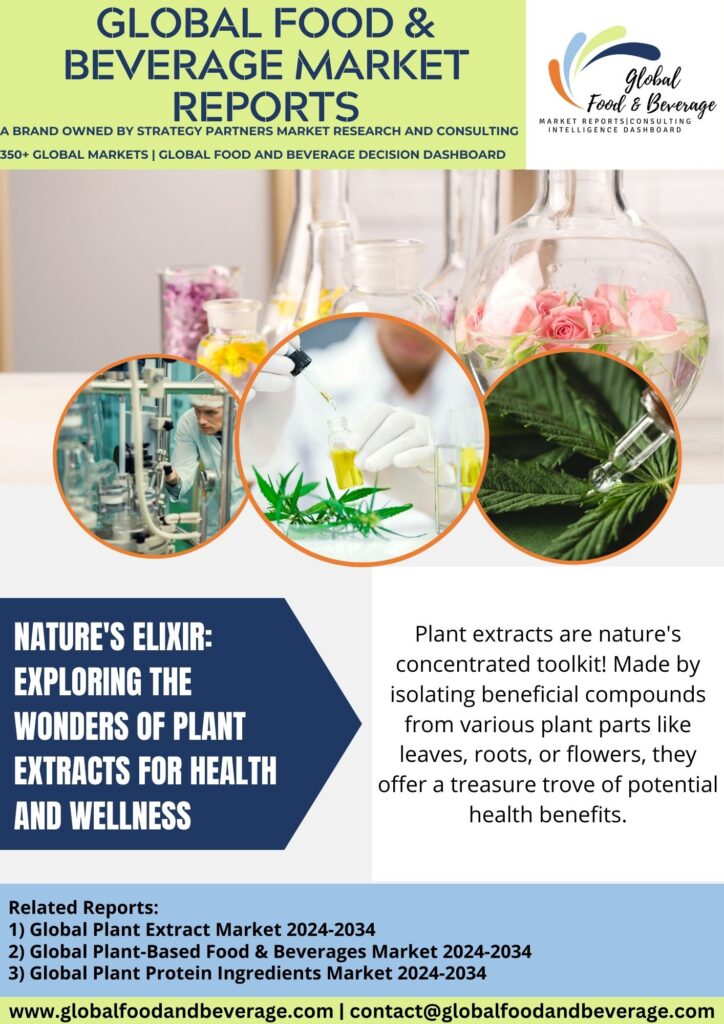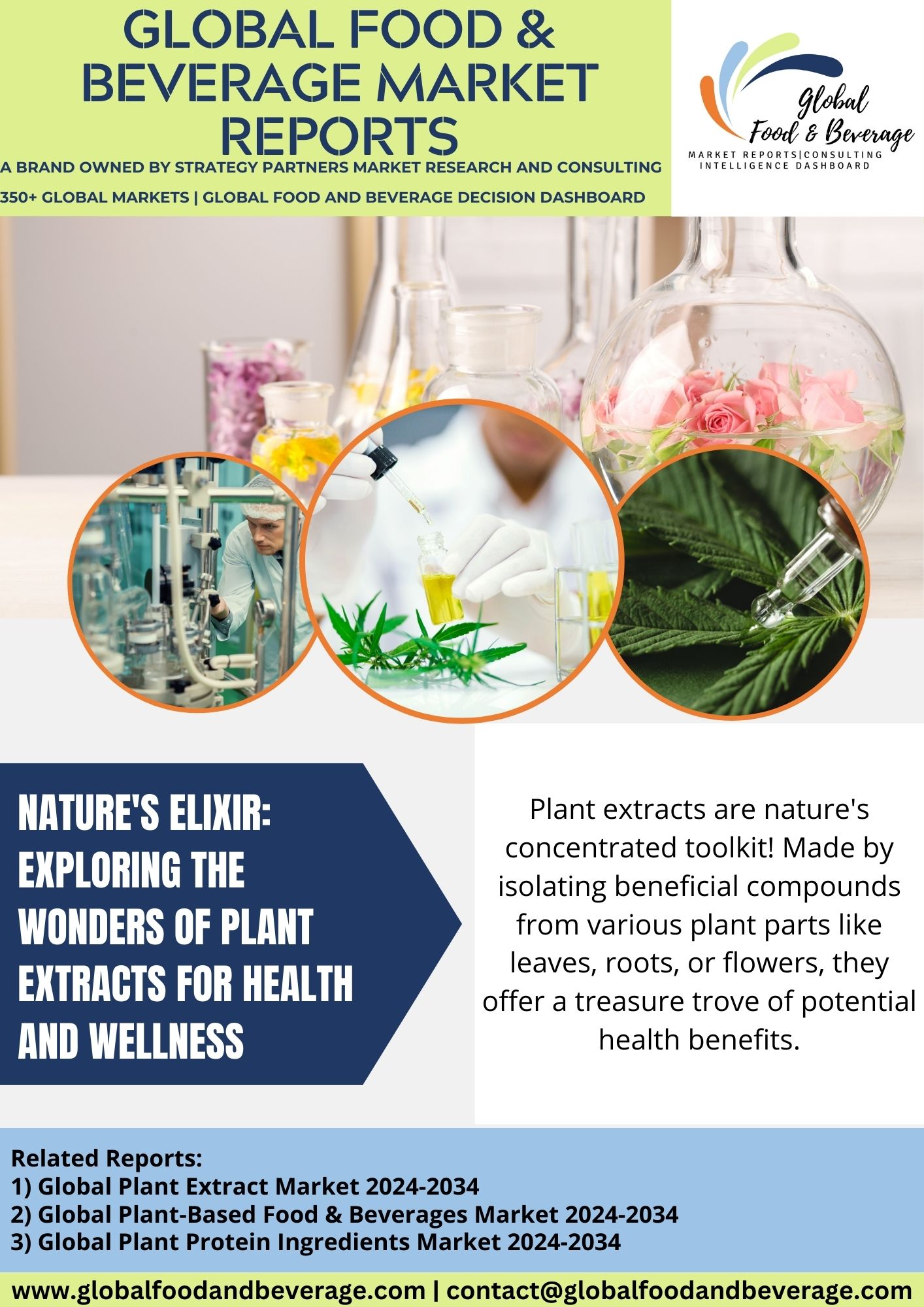Nature’s elixir: exploring the wonders of plant extracts for health and wellness
Plant extracts play a crucial role in various industries, including pharmaceuticals, cosmetics, and food. These extracts are derived from different parts of plants, such as leaves, stems, roots, and flowers, and are known for their diverse chemical compositions and therapeutic properties.

In the pharmaceutical industry, plant extracts have been traditionally used to develop medicines. Many traditional healing systems, such as Ayurveda and Traditional Chinese Medicine, rely heavily on plant-derived remedies. The active compounds present in these extracts often exhibit medicinal properties, making them valuable for the treatment of various health conditions. For instance, the anti-inflammatory properties of certain plant extracts can be harnessed to develop drugs for conditions like arthritis.
Cosmetic formulations also benefit from plant extracts due to their skin-nourishing properties. Natural antioxidants found in plant extracts can help protect the skin from oxidative stress, preventing premature aging. Moreover, extracts like aloe vera and chamomile are well-known for their soothing and moisturizing effects, making them popular ingredients in skincare products.
In the food industry, plant extracts are used as flavoring agents and natural colorants. Vanilla extract, derived from the vanilla bean, is a classic example used to enhance the flavor of various culinary delights. Additionally, plant extracts serve as alternatives to synthetic food additives, meeting the increasing consumer demand for natural and organic products.
The agricultural sector also benefits from plant extracts, as some extracts exhibit pesticidal properties. Neem extract, for instance, is known for its insecticidal and fungicidal properties, providing a natural and eco-friendly solution for pest control.
Research continues to uncover new uses for plant extracts, expanding their applications across various industries. As the demand for natural and sustainable products grows, plant extracts are likely to play an even more prominent role in shaping the future of medicine, cosmetics, and food.
ADVANCEMENT:
In recent years, there have been significant advancements in the field of plant extract technology, driven by a growing demand for natural and sustainable ingredients across various industries. Plant extracts, derived from botanical sources, have been a focus of extensive research and development, leading to innovations that span the realms of pharmaceuticals, cosmetics, food and beverage, and more.
One notable area of advancement lies in extraction techniques. Traditional methods, such as steam distillation and solvent extraction, have been refined and complemented by novel technologies like supercritical fluid extraction and ultrasound-assisted extraction. These modern approaches enhance efficiency, yield, and the preservation of bioactive compounds, ensuring the extraction process is both environmentally friendly and economically viable.
Furthermore, researchers have delved into identifying and isolating specific bioactive compounds within plant extracts, unlocking their therapeutic and functional properties. This has paved the way for the development of plant-based medicines, nutraceuticals, and cosmeceuticals with enhanced efficacy and reduced side effects.
The integration of cutting-edge analytical methods, such as chromatography and mass spectrometry, has enabled a more precise understanding of the composition of plant extracts. This knowledge facilitates the standardization of extracts, ensuring consistent quality and potency in various applications.
As consumer preferences shift towards natural and holistic products, the ongoing advancements in plant extract technology contribute to the development of sustainable solutions that harness the full potential of botanical resources. These breakthroughs not only redefine the landscape of diverse industries but also underscore the importance of plant extracts as key players in the future of natural product development.
CHALLENGE:
The plant extract industry faces multifaceted challenges rooted in sourcing, standardization, sustainability, and market dynamics. Sourcing high-quality plant material poses a continual challenge, influenced by factors such as climate variations, cultivation practices, and potential disruptions in the supply chain. Ensuring a consistent supply of standardized plant extracts, free from contaminants and with reliable potency, demands stringent quality control measures.
Sustainability considerations encompass ethical harvesting practices and the conservation of biodiversity. The increasing demand for plant extracts raises concerns about overharvesting and the impact on ecosystems, necessitating responsible and eco-friendly sourcing practices.
Market dynamics add complexity, with variations in consumer preferences and regulatory landscapes. The industry must navigate evolving trends, such as increased interest in natural products and the demand for transparency, while complying with diverse global regulations.
Formulation challenges also arise, with the need to balance efficacy, solubility, and bioavailability in diverse applications. Innovations in extraction methods and formulation technologies are essential to overcome these hurdles.
In summary, challenges in sourcing, standardization, sustainability, market dynamics, and formulation collectively shape the landscape of the plant extract industry. Ongoing innovation, adherence to ethical practices, and collaboration across the supply chain are crucial for addressing these complexities and ensuring the industry’s long-term sustainability.
CONCLUSION:
In conclusion, the advancements in plant extract technology represent a transformative journey toward sustainable and innovative solutions. Modern extraction techniques, coupled with in-depth understanding of bioactive compounds, have propelled plant extracts into pivotal roles across pharmaceuticals, cosmetics, and food industries. The integration of cutting-edge analytical methods ensures standardized quality, while the global emphasis on natural and holistic products amplifies the significance of plant extracts. This dynamic evolution underscores their crucial place in the future of diverse industries, as they continue to contribute to the development of environmentally friendly, bioactive, and efficacious products.
“
